Well-meaning friends & parents of other children often offer advice and suggestions to parents in need. You may have heard hundreds of tales about the symptoms, causes, and treatment of speech delay in children.
When you are unsure whether your child has a speech delay, it may be difficult for you to tell the facts apart from myths.
So, here are the 14 most common myths about speech impairment in children and the truth behind each of them.
Speech Delay Myth #1: Telegraphic Speech Helps Toddlers Learn To Talk
Telegraphic speech means talking in a simplified language that typically lacks action verbs, prepositions, and correct grammar. For example, instead of "he is eating candy," you may say, "yumm...candy."
While it sounds simple to the adult ears, it may be confusing for a child who is just learning to speak. When you want a child's speech and language skills to develop, you should speak grammatically correctly.
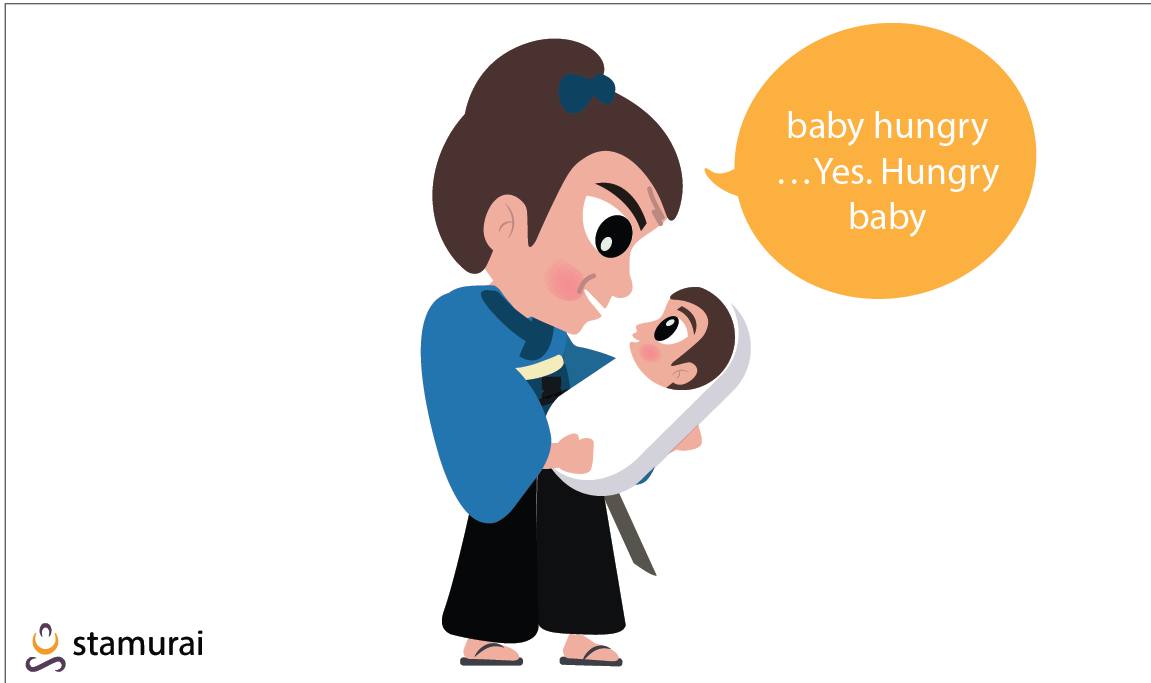
Telegraphic speech can limit a child’s speech and language development since it is a poor model of speech.
Speech Delay Myth #2: Children Grow Out Of Speech Delays With Time, On Their Own
Some children grow out of speech delays eventually. Many of them don’t require any help from professionals. However, it is difficult to predict which children will grow out and who will experience speech delays for life.
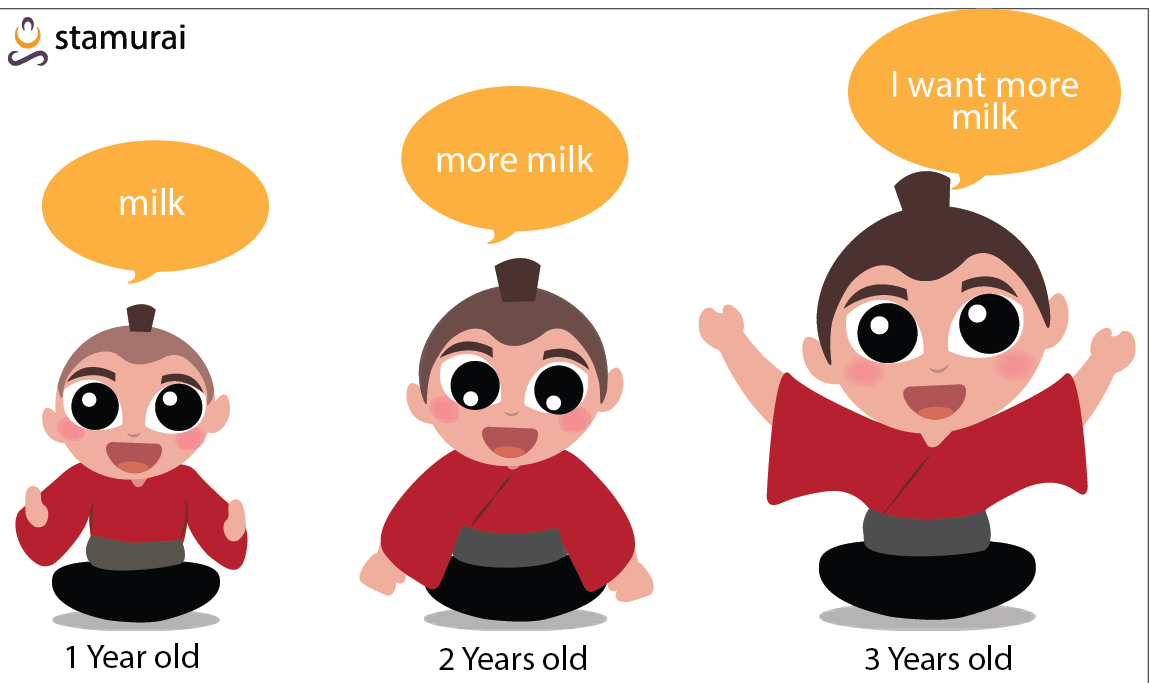
Leaving speech delay in the hands of time is not a wise decision especially if your family has a history of speech delays and disfluencies. Getting the opinion of a speech-language pathologist (SLP) and beginning at-home speech exercises with your children is the best way to handle speech delays in a toddler.
Speech Delay Myth #3: Pacifiers Are Bad For Speech Development In A Child
It is common for many 1 and 2-year-old children to use pacifiers or dummies. No research states that the prolonged use of pacifiers or thumb sucking can cause speech delays in 2-year-old and 3-year-old children.
If you notice unclear speech in 4-years old child, it’s likely not linked to their extensive dependence on pacifiers. You should consult a speech-language pathologist (SLP) in such cases.
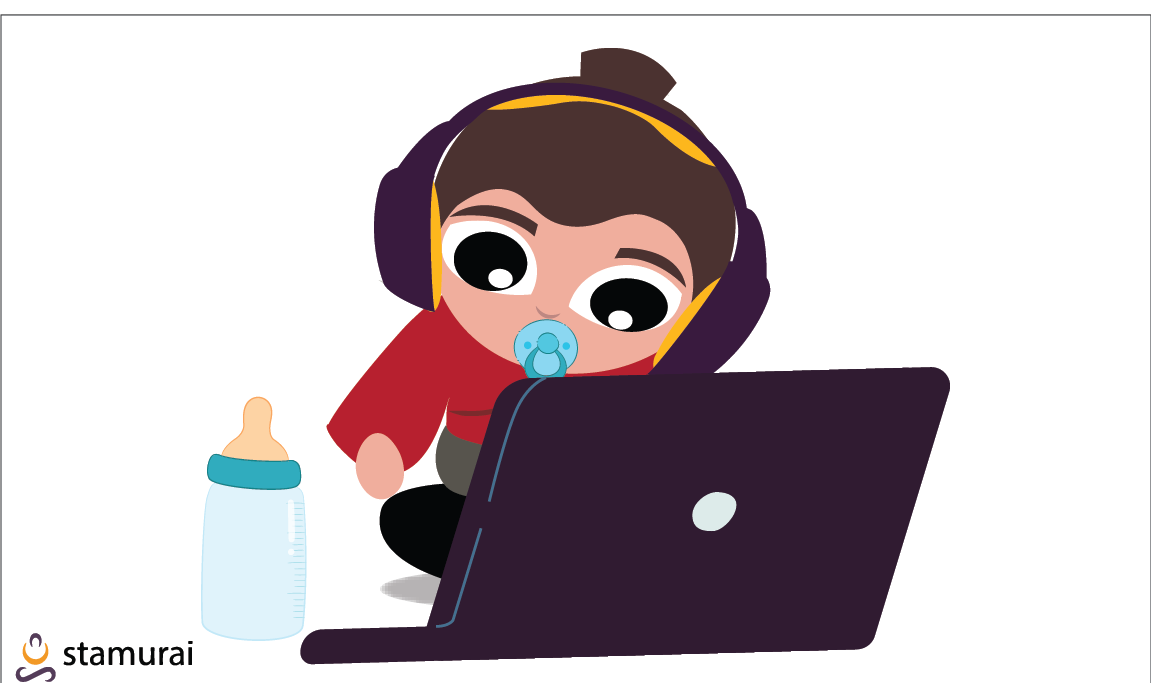
However, if your child uses a pacifier most of the time, they won't get too many opportunities to babble or talk. It may be wise to restrict the use of pacifiers immediately after they get out of bed or before their naptime.
Speech Delay Myth #4: Baby-talk Hinders A Child’s Development
Studies show that using baby-talk can help your child’s speech and language development. Baby-talk closely mimics how babies babble and talk. It is often more interesting than “normal” adult-talk to babies.
Using grammatically correct sentences, but talking in a high-pitched voice comprises baby-talk. Research shows that making funny faces with exaggerated expressions stimulates infants to follow the speaker’s voice.

There is a chance that your baby will pay more attention to you if you are baby-talking. So, be sure to be grammatically correct!
Speech Delay Myth #5: Boys Are Late-talkers
Boys are late-bloomers is a common myth related to speech delay. Boys do tend to speak around 1 or 2 months later than girls. However, they catch up to girls within 18 months or so.
However, researchers say that you should still pay attention to the nature of speech and language delays in your boy child.
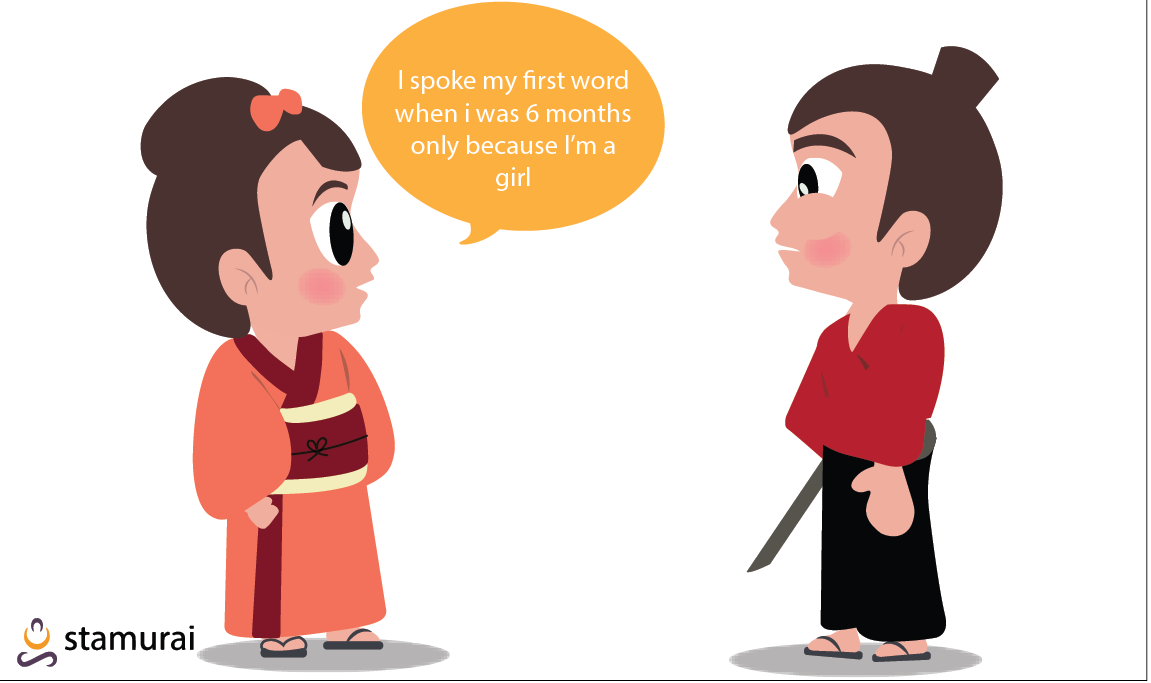
If your child isn’t babbling by the time he is 6 to 11 months old and not saying 2-3 words by the time they are 15-months old, you should consult a speech-language pathologist (SLP). Timely speech therapy can boost your child’s speech and language development.
Speech Delay Myth #6: Twins Have Delayed Language Development
A study involving 473 sets of twins in the US showed that late speech and language emergence was twice as prevalent among twins as compared to single-born children.
The twinning effect is more common in the case of identical twins in comparison to fraternal twins.

However, if your twins don't say their first word by their first birthday, it's cause for concern. You should consult your pediatrician and an SLP immediately for their evaluation and assessment.
Speech Delay Myth #7: Younger Siblings Experience Speech Delays Because Older Siblings Talk For Them
This is one of the top myths about speech delay in children. It is common for the older children in the family to act as a communication bridge between the youngest child and their parents.

Younger children may initially rely on their older siblings to communicate with their parents and other family members. In reality, having an older sibling should not cause any significant speech delays.
It is untrue that having one or more older siblings can delay the lastborn’s speech.
Speech Delay Myth #8: Learning More Than One Language At A Time Causes Speech And Language Delays In Children
Studies show that children from bilingual homes may show a slight delay in saying their first word. Most importantly, they may mix up words from two or more languages until they are about 4-years-old.
However, if your 4-year-old isn’t talking, it is a serious cause for concern irrespective of how many languages you speak at home.

Children who grow up in multilingual homes do not have difficulty learning to speak, read and write. They have a good chance of mastering all the languages they hear at home, at a very early age.
Speech Delay Myth #9: A 3-year Old Child May Not Talk Because They Are Lazy
A 3-year-old should be able to say 3-word sentences and use simple pronouns. Some 3 to 4-year olds can also use descriptive words such as "happy," "sad," "big," "small," and "cold."
They can repeat words said by their parents and peers. They can also use most of the speech sounds. Listeners should be able to understand almost all of the child’s speech by their fourth birthday.

Speech delay in 3-years-old children can be a sign of selective mutism, severe and repeated ear infections, childhood apraxia of speech, autism, intellectual disability and/or hearing loss.
Always consult a pediatrician before you blame your child’s mutism on their laziness!
Speech Delay Myth #10: Speech And Language Delays Run In Your Family
There is some truth in the heredity of speech and language problems. The child’s dad or granddad may have been a late-bloomer, but there is no guarantee that your child will catch up with his peers’ speech development in the future.
There may have been a family member who turned out fine without any intervention. That does not imply that they wouldn’t have benefited from professional help.

Therefore, if there’s evidence that speech delay runs in the family, you should take your child to the speech-language pathologist (SLP) immediately.
Speech Delay Myth #11: Your Child Talks Fine At Home; S/He Doesn’t Talk At School At All Because S/He Is Shy
If your 3-years old doesn't talk at all at school, the playground, or daycare, but talks normally at home, your child may have selective mutism.
Some children can be shyer than others. They typically speak less in front of unknown or lesser-known people. However, they talk at school and daycare with their friends.

Selective mutism is a form of anxiety disorder in children. Children who exhibit signs of selective mutism may require counseling and behavior therapy. It is a treatable disorder. However, it is imperative to get early intervention for a child experiencing selective mutism.
Speech Delay Myth #12: You Are Working Parents. That's Why Your 2-years-old Child Isn't Talking
Parents often blame their busy schedules for speech delays in their children. “Did I cause speech delay in my child?” is one of the most common questions concerned parents ask their child’s speech therapist.
While it is easy to blame yourself, here are a few facts that can relieve your guilt!
Spend quality time with your child whenever you can. Direct interactions boost a child’s speech and language skills.
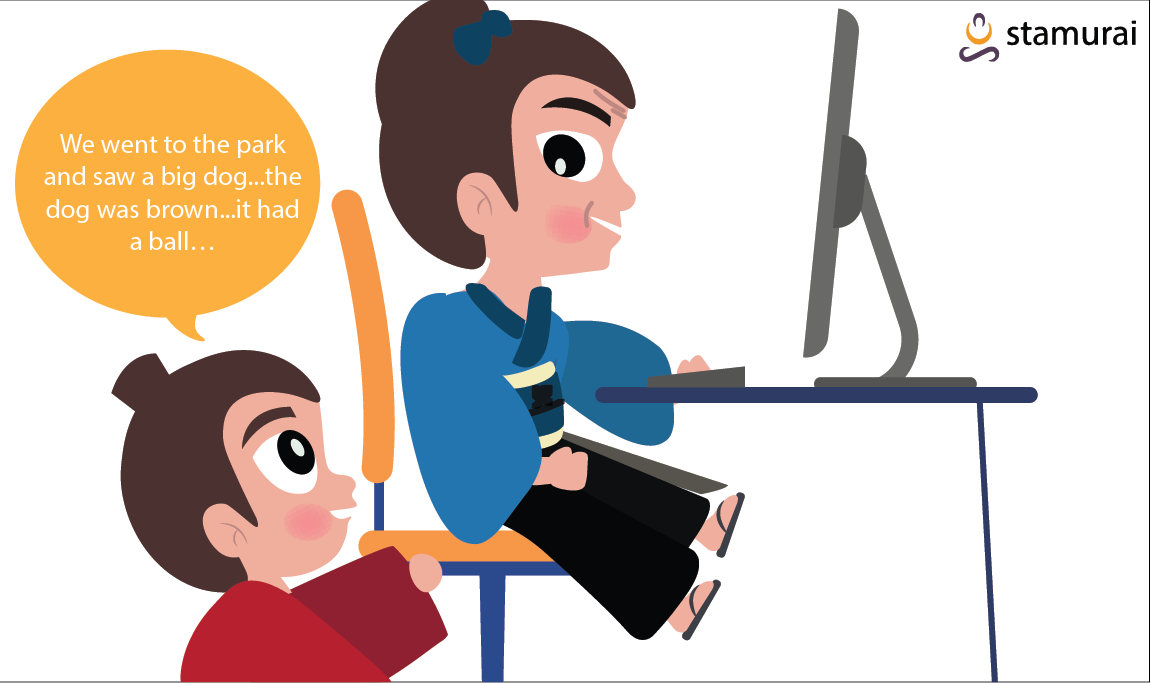
Most babies have the innate ability to pick up a language and say their first words around 6 to 8 months of age. They learn to speak whether they are actively taught language or not.
If your child has a speech and language delay, an SLP can help you find out why. However, blaming yourself or thinking about quitting your day job definitely won't help your child's speech development.
Speech Delay Myth #13: You Are Too Strict/Lenient At Home. That’s Why Your Child Isn’t Talking Yet
When children experience speech delay, parents tend to feel guilty. Research shows that parenting style has nothing to do with the development rate of speech and language in children.
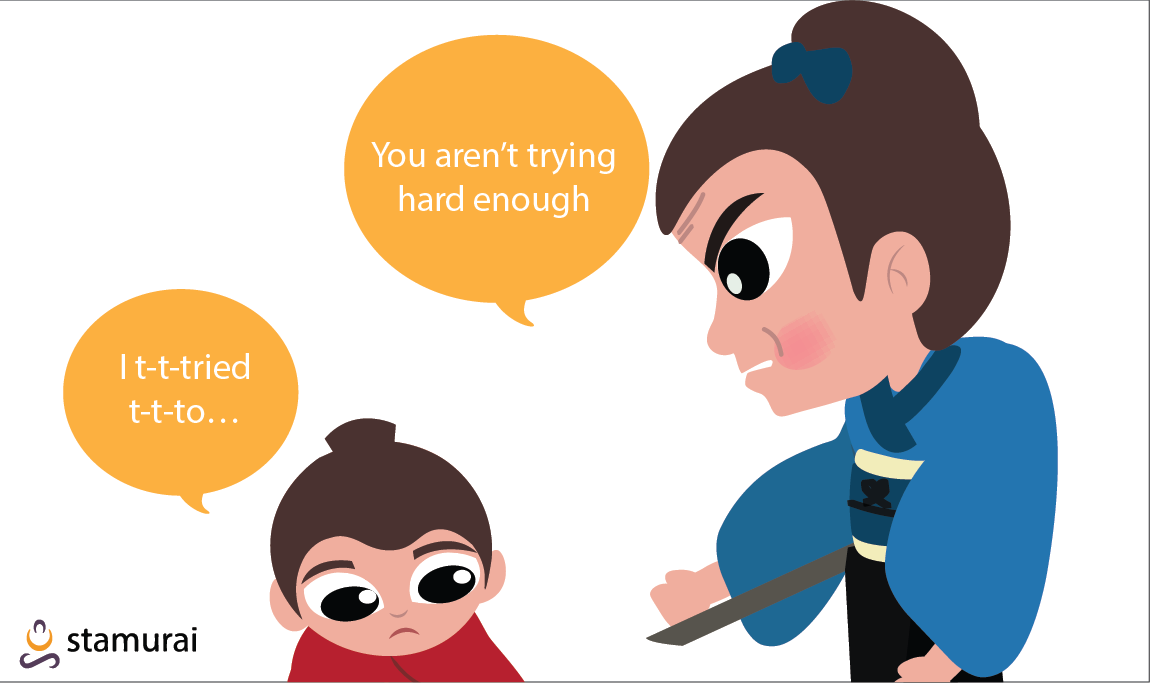
However, if a parent is constantly rebuking or criticizing the child for their speech problem, it may become a barrier in their way of speech and language development.
Repeatedly correcting a child's pronunciation and using negative reinforcement may make it challenging for young kids to overcome their speech disorders.
Speech Delay Myth #14: A Child Has Speech Delays Because S/He Has An Intellectual Disability Or Low IQ
While some developmental disorders (DD) and intellectual disabilities (ID) produce speech and language delays, not all speech delays are signs of DDs or IDs.

Nonetheless, diagnosing ID in very young children isn’t always easy. So, if you notice that your child is not meeting the age-related speech and language milestones, you should consult your pediatrician and an SLP without wasting time.
Most home remedies for speech delay do not address the complex issues that the child may face as a result of ID or developmental disorders.
In Conclusion
When deciding what’s best for your child, it’s always important to consider the myths vs. facts of speech delays in children. Use a verified age-related speech and language milestone to weigh your child’s speech development. If you notice a delay, consult an SLP, pediatrician, and ENT (ear-nose-throat doctor) without waiting for them to catch up with their peers on their own.










